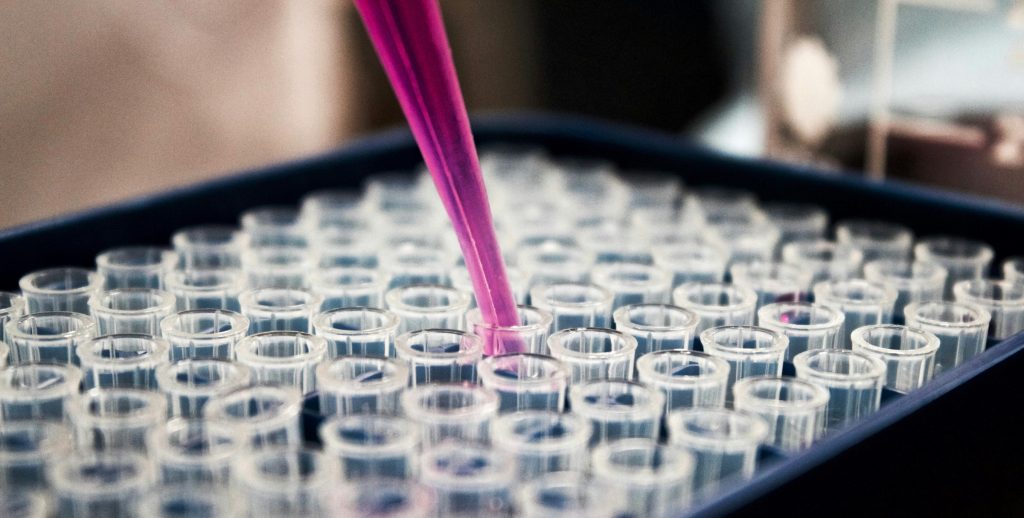How menopause can make some women more susceptible to STIs
In recent years, transmission rates of STIs have risen in the UK, with a troubling rise in diagnoses of Chlamydia, Gonorrhoea, and Syphilis, especially in Scotland and Wales. Rises have been especially pronounced among older people.
Can changes that take place in the body during menopause make contracting STIs more likely?
Keep reading to find out.

Are you worried about STIs? Get tested at a sexual health clinic near you.
Why are STIs rising in older people?
Some people think that sexual desires instantly die out after you reach the age of 60.
While this is indeed true for some, for a variety of reasons (including hormonal changes, health complications, stress, and more), it’s by no means true of everyone.
Indeed, many medical advances have been made in the last few decades to keep seniors frisky.
Medications like Viagra and Cialis for erectile dysfunction, and oestrogen creams and tablets for vaginal dryness, have helped grease the wheels for the sexual act for seniors. The more often people have sex, the higher the risk of contracting an STI.
Another reason why STIs are on the rise among older people may be the fact that sex education received by older generations tended to be less sophisticated than the education most young people receive today.
Many older people may find themselves dating after a divorce or the death of a spouse and haven’t had to worry about STIs for decades. Senior citizens may enter the dating scene with beliefs, instincts, and knowledge about sexual health absorbed decades ago. Doctors also may not even think of testing older people for STIs when they go for their routine appointments. Since levels of STIs are higher than ever, this lack of knowledge may put them at risk.
Older adults are generally less likely to discuss their sexual histories than younger people, especially with their partners or healthcare providers, making it more likely that they will pass on an infection if they have one.
Condom use among older people also tends to be less consistent, especially among men who already struggle with erectile dysfunction.
But those aren’t the only reasons why STI infections in older people are more common than you might think. Older women may be at particular risk…
What role does menopause play?
Menopause is a natural biological process that marks the end of a woman’s menstrual cycle. It’s diagnosed after you’ve gone 12 months without a menstrual period. Menopause usually happens between 45 and 55.
Menopause is caused by a loss of oestrogen production from the ovaries, which affects vaginal lubrication and tissue elasticity. This can cause genitourinary syndrome of menopause, or GSM, which can result in vaginal dryness, painful sex, and UTIs. About half of post-menopausal women experience GSM.
Women who undergo menopause tend to lose the genital tract’s protective barrier, an essential defence against the pathogens that cause STIs.
The surface of the vagina is comprised of several layers of epithelial cells held together by adhesion molecules like desmoglein-1 or desmocollin-1. These proteins strengthen the vaginal lining.
As these protective barriers break down, women may become more susceptible to absorbing pathogens they may be exposed to during sexual intercourse.
There are several treatment options for these women, from products applied to the vaginal wall, tablets, or hormone replacement. These can be discussed with your doctor.
The longer a woman has HPV (Human Papillomavirus) without eliminating it from her body, the more risk of cancerous changes. Being in a long term monogamous relationship does not necessarily mean your partner is monogamous, and some women will not routinely get tested for HPV and cervical smear tests. However, it’s very important that gynaecological check-ups continue well after the menopause.
Get a menopause test
If you’re a woman, over the age of 45, and sexually active, you may want to pay particular attention to your sexual health.
In addition to getting tested regularly after every new sexual encounter, you may want to establish whether you’ve gone through menopause, as this may heighten your risk level for contracting an STI.
Better2Know provides a menopause test that assesses your menopausal status by determining the levels of five hormones that contribute to regulating your reproductive cycle. These hormones control different processes within your body, such as digestion, lactation, metabolism, and reproduction.
The hormones tested include:
- Luteinizing hormone (LH): Helps to control the menstrual cycle and release of eggs.
- Follicle-stimulating hormone (FSH): This is important for producing eggs in the ovaries.
- Thyroid-stimulating hormone (TSH): This controls the production of thyroid hormones.
- Free thyroxine (FT4): This can assist in determining whether your thyroid is functioning properly.
- Oestradiol: A hormone which is important for the growth and development of the female reproductive system.
Final thoughts
If you’re wondering whether you’ve undergone menopause and are concerned about the effect this could have on your health, click the button below to schedule a menopause test with Better2Know.

It’s always better to know your health status. Get tested at a clinic near you.
Categories
- Awards
- Bacterial Vaginosis
- Blood Tests
- Cervical Cancer
- Chlamydia
- Condoms
- Covid-19
- Gardnerella
- Genital Warts
- Gonorrhoea
- Health and Wellness
- Hepatitis A
- Hepatitis B
- Hepatitis C
- Herpes
- HIV
- HIV (AIDS)
- Home Testing
- HPV
- Instant Testing
- MSM
- Mycoplasma
- News
- Non-Specific Urethritis
- PAP Smear
- Pre-Pregnancy
- Sexual Health
- STD Symptoms
- STD Tests and Screens
- STI Transmission
- Stigma
- STIs
- Swab Tests
- Syphilis
- Trichomonas
- Ureaplasma
- WSW
- Zika




